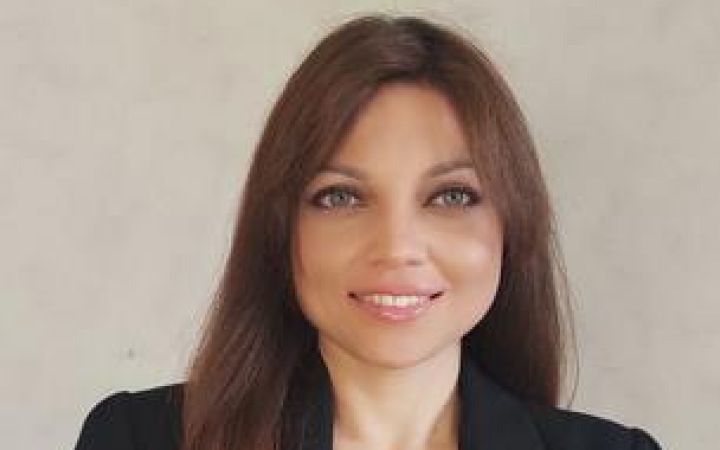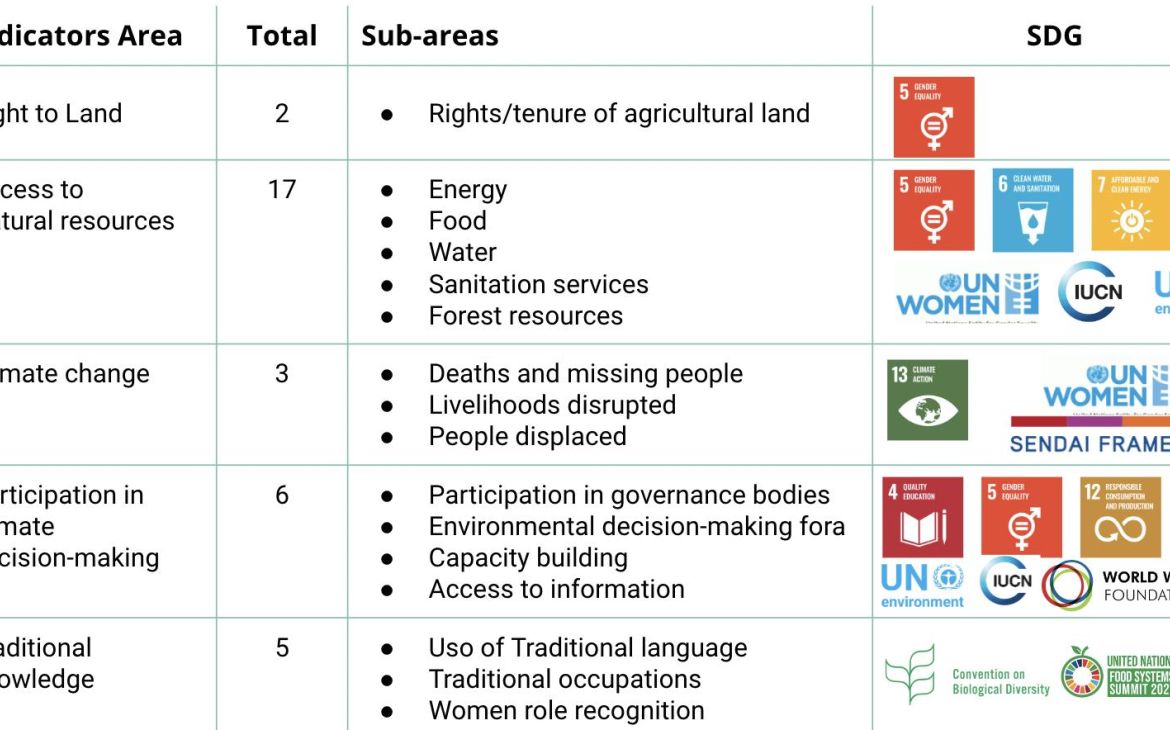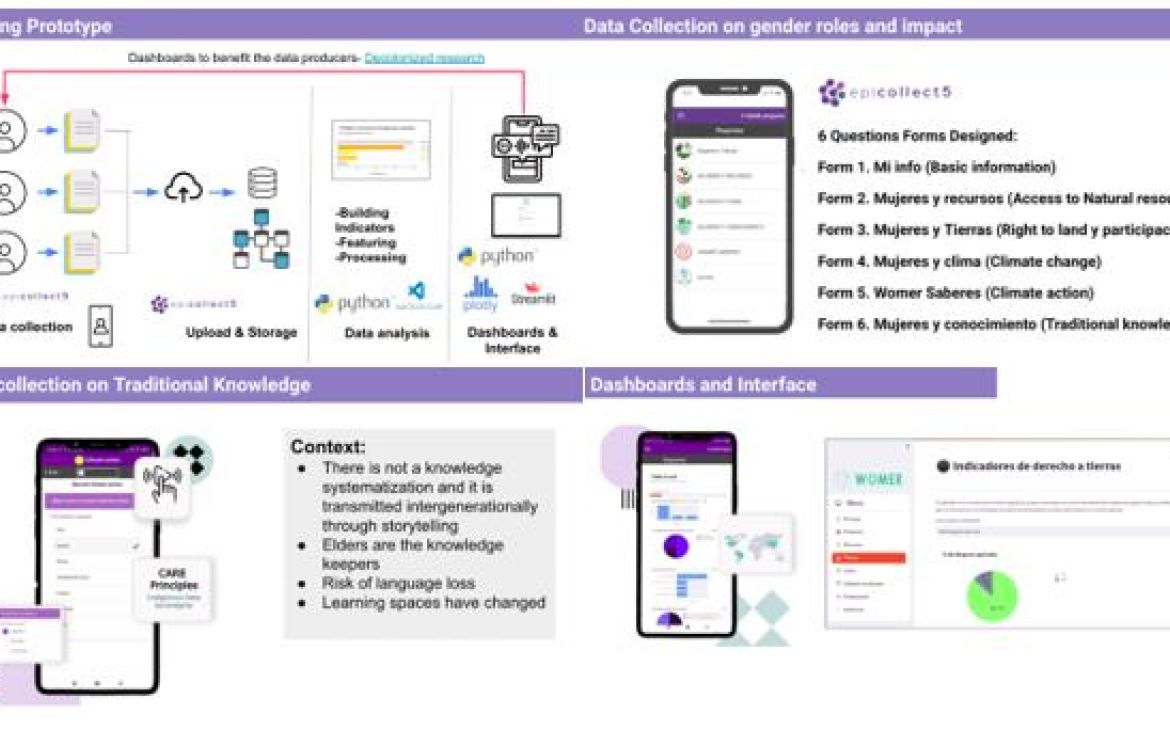Merlyn Hurtado, Finalist of GEAR cycle II Climate Change and Gender Equality (2021)
Paris, France
We know that, globally, women hold over one-third of seats in local decision-making bodies. However, there is a lack of data on the participation of indigenous women in local decision-making. Merlyn, a research and data analyst at the Learning Planet Institute (University of Paris Cité), knows this issue first-hand. In Colombia, there are around two million indigenous peoples, according to the 2018 Census (IWGIA). However, their inclusion in decision-making processes remains limited, especially for women.
Merlyn has worked with Indigenous communities in Colombia and has witnessed the numerous issues they face, such as gender inequality, discrimination based on ethnicity, and a lack of representation in the climate decision-making that affects them directly. But she has also witnessed the communities’ efforts to regenerate and preserve nature and their ecosystems by using traditional knowledge. Considering this, Merlyn wanted to support Indigenous women’s efforts to make their voices heard by developing a project with and for the Indigenous communities that recognizes indigenous women as environmental guardians and a key part of decision-making processes, due to their role in preserving biodiversity, that could inform climate change policies and programmes.
To do so, Merlyn applied for the Crowd4SDG GEAR cycle II on the nexus of Gender Equality (SDG 5) and Climate Change (SDG 13), while finishing her second Master’s in Digital Sciences at the University of Paris. Merlyn was selected, became one of the finalists of the Cycle that year and presented her project at the Crowd4SDG Conference at the Geneva Trialogue on 17 March 2022.
Merlyn’s citizen science project, WOMER, aims to collect and produce data on the impacts of climate change on indigenous women in Colombia. Citizen scientists are Indigenous women themselves. The project also aims to support indigenous organizations to develop project proposals for local authorities and governments and to establish a network of local young indigenous women.
Merlyn and her former teammate, Longmun Dawam, from Nigeria, worked on developing a digital data collection tool where Indigenous women could input their data on a mobile application. These real-time data could afterwards be used for advocating evidence-based climate change and biodiversity policies aligned with the needs of Indigenous women and for creating projects. Merlyn based her data governance approach on the CARE Principles for Indigenous Data Governance, which are specifically developed for Indigenous people.
These data capture 33 indicators with gender dimensions in five areas, as illustrated below:
- 12 UN SDGs
- 6 IUCN (International Union for Conservation of Nature)
- 3 Convention on Biological Diversity
- Sendai Framework
- Summit Food Systems
- 9 UN Women
- 1 Indigenous community
Although Merlyn started her project prototype with CS Logger - a Citizen Science Solution Kit developed by Crowd4SDG partners - she opted out for EpiCollect, which allows communities to access collected data in real time and offers offline accessibility and a multilingual interface.
Merlyn organized workshops with Indigenous women on how to use the mobile application to collect data and to grasp the purpose of each piece of information provided. More importantly, WOMER involved women leaders of each indigenous community to serve as “accelerators”. Merlyn mentioned that women leaders believed that WOMER was not just a project to benefit the external researcher but could actually benefit the community members. She has built a strong relationship of trust with the communities and now indigenous women leaders themselves communicate the purpose and importance of the project amongst their communities.
Merlyn also provided training to 20 Indigenous women from the Pastos People from the school FAU-AL, financed by Urgent Action Fund in Latin America, focused on the role of Indigenous women in curbing the impacts of climate change by their participating in the measurement and provision of more gender-disaggregated data. The collected data will be analysed by the communities themselves in groups - “Mingas” - who gather in their traditional spaces, “Tulpa”.
Given her academic background, Merlyn already had strong knowledge in the field of data analysis. However, she learned more about data collection, and citizen science data and projects from UNITAR’s coaching. Her participation in the GEAR Cycle also helped strengthen her communication skills through the multiple iterations of pitching and engaging with different stakeholders for collaboration, fundraising and other purposes.
After the GEAR Cycle II, Merlyn collaborated with the University of Paris and the University of Geneva during her internship, where she continued working on her project. She values the support provided by Dr Jose Luis Marques, Senior Lecturer at the Centre Universitaire d'Informatique at the University of Geneva (UNIGE), and head of the SDG Accelerator, for the development and prototyping processes, and the collaboration with UNITAR for connecting her with the National Statistical Office of Colombia (DANE), which would have been difficult without UNITAR’s help. She also pitched her project to DANE, garnering their interest.
As there are 185 million Indigenous women in the world, Merlyn hopes this project and citizen science data collection could be replicated in other places around the globe.
Crowd4SDG is an EU-funded research project exploring how citizen science can track progress towards the SDGs and how grassroots innovation can help achieve such progress. UNITAR'S Strategic Implementation of the 2030 Agenda Unit is a member of the consortium along with the University of Geneva, the European Organization for Nuclear Research (CERN), the Spanish National Research Council (CSIC), the Politecnico di Milano and the Université de Paris-CRI.




